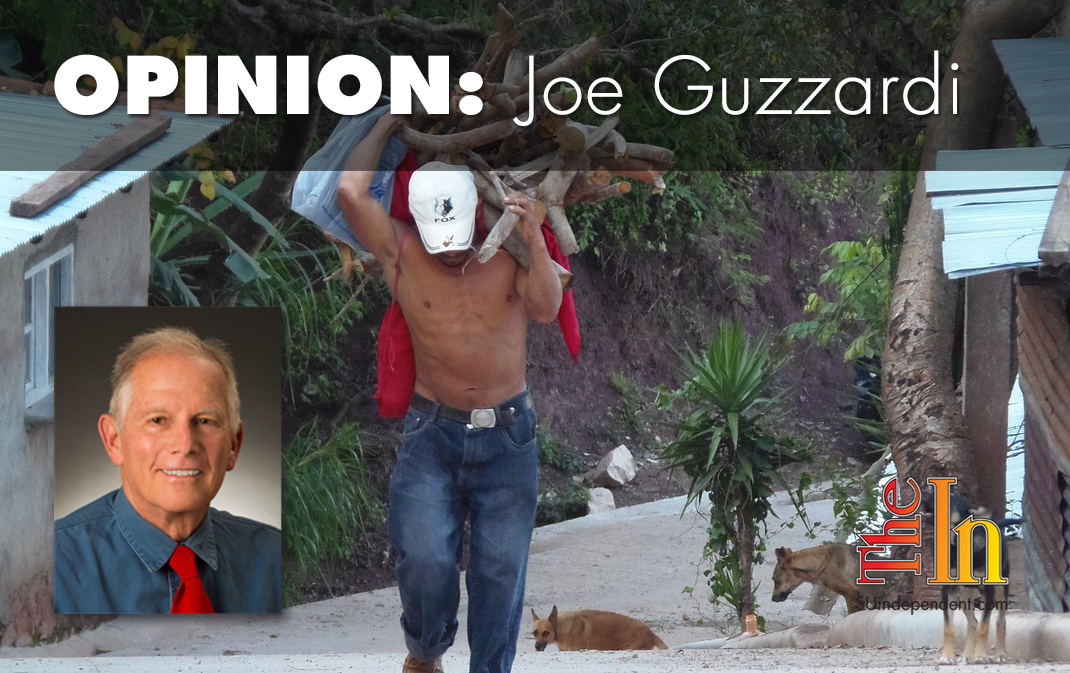
Caravan nears U.S., meets Mexican resistance
By Joe Guzzardi
The Central American caravan has conclusively proven three things. First, the migrants are economic migrants and therefore don’t qualify for asylum. Second, despite offers from the Mexican government to grant them safe haven, their goal is to reach the United States where they expect that affirmative benefits will be more generous. Third, the consensus among most Mexicans in an area where part of the caravan has arrived matches the often skeptical sentiment in the U.S. toward offering services to foreign nationals when so many locals are hurting.
Mexico is a sovereign nation, and its citizens, especially its working and unemployed, are mostly united in feeling that their country cannot accommodate more people without harming its own.
As of mid-November, about 1,000 people who broke away from the original caravan have reached Tijuana where Mayor Juan Manuel Gastelum called the influx a “tsunami.” Thousands more could soon follow as the majority of the larger caravan arrives, and all plan to request asylum.
President-elect Andreas Manuel Lopez Obrador’s incoming government vowed to provide jobs and visas to the Central Americans. Mexico has generously offered asylum in the form of temporary identification documents, work permits, and education for children.
In other words, migrants fleeing Central American countries and claiming fear of persecution need not travel further than Mexico to find safe haven. Mexico’s proposal not only protects those seeking safety, it also helps the U.S. reduce its significant asylum fraud level. Immigration judges who hear actual cases overwhelmingly deny asylum claims. From 2011 to 2016, the denial rates were as follows: Mexico, 89 percent; El Salvador, 82.9 percent; Honduras, 80.3 percent; and Guatemala, 77.2 percent.
But similar to the U.S., Mexico’s natives question asylum offers to foreign nationals. As one woman told Reuters, “We also need help,” inferring that the more the Mexican government focuses on helping Central Americans, the less will remain for her and her family.
Should the migrants successfully enter the U.S. and receive employment authorization, they’ll compete with Americans and already present lawful residents for jobs. An expanded labor pool is particularly hurtful to vulnerable, underemployed minorities in the U.S. Many of the unsuspecting migrants with less than a high school education will be subject to devastating labor and wage exploitation. Illegal immigrants make up an estimated 5 percent of the U.S. labor force and are therefore subject to criminal labor abuse. Moreover, immigration is projected to drive growth in the U.S. labor pool through at least 2035.
A final underreported fact regarding the caravan is that the sending countries — Honduras, El Salvador, and Guatemala — are relatively high-fertility nations. Their presence, their as-yet unborn children, their existing children, and the family members that they will eventually petition when they become citizens will have an adverse effect on efforts to stabilize U.S. population. The Pew Research Center estimates that the U.S. is projected to grow to 441 million in 2065 from today’s 329 million and that 88 percent of the future increase is linked to future immigrants and their descendants.
Efforts to deter the caravan should be interpreted as measures intended to help struggling Americans and in the best interests of future generations but not reflective of an anti-immigrant sentiment, a charge leveled too often without basis.
The viewpoints expressed above are those of the author and do not necessarily reflect those of The Independent.
How to submit an article, guest opinion piece, or letter to the editor to The Independent
Do you have something to say? Want your voice to be heard by thousands of readers? Send The Independent your letter to the editor or guest opinion piece. All submissions will be considered for publication by our editorial staff. If your letter or editorial is accepted, it will run on suindependent.com, and we’ll promote it through all of our social media channels. We may even decide to include it in our monthly print edition. Just follow our simple submission guidelines and make your voice heard:
—Submissions should be between 300 and 1,500 words.
—Submissions must be sent to editor@infowest.com as a .doc, .docx, .txt, or .rtf file.
—The subject line of the email containing your submission should read “Letter to the editor.”
—Attach your name to both the email and the document file (we don’t run anonymous letters).
—If you have a photo or image you’d like us to use and it’s in .jpg format, at least 1200 X 754 pixels large, and your intellectual property (you own the copyright), feel free to attach it as well, though we reserve the right to choose a different image.
—If you are on Twitter and would like a shout-out when your piece or letter is published, include that in your correspondence and we’ll give you a mention at the time of publication.
Articles related to “Caravan nears U.S., meets Mexican resistance”
Thousands of migrants pressing north is bad for almost everyone



